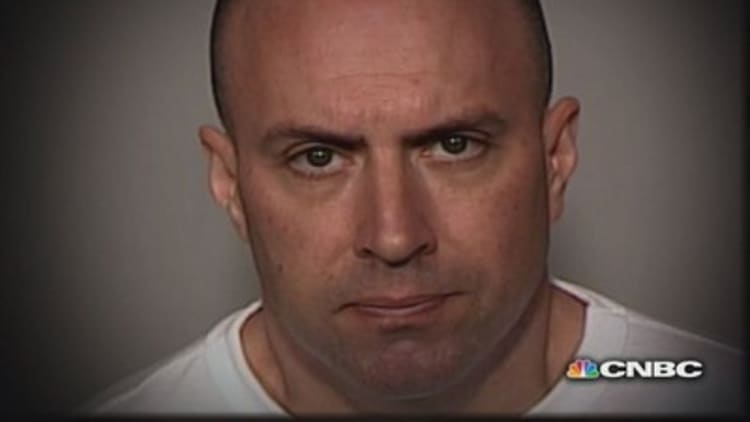
Gerard Cellette spent money like it was going out of style in Andover, Minn. He owned homes worth $7.2 million, some decked out with bowling alleys and $100,000 video arcades. One barn-like structure had a 1950s-style diner, a screening room and go-cart track out back.
He also spent lavishly on gifts for friends and family members, racking up $1 million on his Visa card. He generously donated $4 million to the Living Word Christian Center in Brooklyn Park, Minn., owned 11 cars and spent $1.1 million on jets and vacations. He shelled out $300,000 on sports tickets, sitting in a luxury box at Minnesota Vikings football games.
To put it mildly, Cellette, 49, lived a dream life. But just like Bernie Madoff—the king of all Ponzi schemes—Cellette paid for all the toys, travel and fun with money he stole from unwitting investors, according to prosecutors. And just like Madoff, who was arrested five years ago Wednesday, Cellette is behind bars.
(Read more: Five years on, Madoff still spinning the story)
Cellette, who graduated from high school but never attended college, ran a nearly $200 million Ponzi scheme out of his home office, according to prosecutors.
The pitch was simple enough. He told potential investors his company, Minnesota Printing Service, was plush with lucrative contracts with companies including Target and AT&T, and urged investors to get in on the action. Prosecutors say Cellette guaranteed a 10 percent return on investors' money in 30 days and even sent out testimonials promising that he was the real deal. Prospective investors also received documents that outlined $53 million worth of bogus Minnesota Printing Service's contracts.
Surprisingly, the scheme lasted for five years, with money came pouring in from people like Chris Shaw. "Some of my friends and family have lost everything. They had millions invested in this," said Shaw, who happily handed his money over to Cellette. The two met when their sons played football together. "You know, he sucked me in as a family friend and I wasn't going to question what he did," Shaw said.
(Read more: 10 white-collar fugitives on the FBI's wish list)
Cellette didn't limit himself to Minnesota, though.
He targeted investors in Georgia, Arizona, Colorado, Hawaii, Illinois and California, prosecutors says. But as in most other Ponzi cases, investors for one reason or another eventually wanted to pull their money out.
According to Hennepin County Attorney Mike Freeman, some of his wealthier investors asked to examine Cellette's books. "His biggest investors were saying, 'Your bank statements don't hold up to what you say.' " That's when Cellette completely crumbled. He walked into Freeman's office and confessed in 2009. "He basically told us his entire operation. How he did contracts. How he convinced investors," Freeman told CNBC.
Cellette eventually was sentenced to 96 months, and was quietly serving his time in the Hennepin County jail in Minnesota until things got a bit more complicated.
Marc Labreche, the senior deputy prosecutor in Orange County, Calif., recently brought a case against Cellette, who was shackled and shipped from Minnesota to Southern California.
"The loss is incredible. The number of victims is over 80 and we have over $21 million in losses in just Orange County," Labreche said. That number is likely going to increase and Cellette is now facing 455 counts including, aggravated white-collar crime, according to court documents. Cellette plead not guilty and will go to trial in January.
But no matter how many Ponzi cases hit the headlines, investors will likely continue to fall for the persuasive pitch of guaranteed returns.
"I think there will always be Ponzis. Unfortunately there will always be victims who needs money fast." said former U.S. Attorney Boyd Johnson III. "I think we learned that when something seems too good to be true, it often is."
Johnson, who is now a white collar defense lawyer, warns would-be Madoffs or Cellettes: "No matter how effective the Ponzi scheme is, at the end of the day it's going to crash down. Problem is, when the music stops, there aren't enough chairs for people to sit on."
—By CNBC's Jeff Pohlman and Valerie Patriarca. Follow the team on Twitter @CNBCinvestigate


